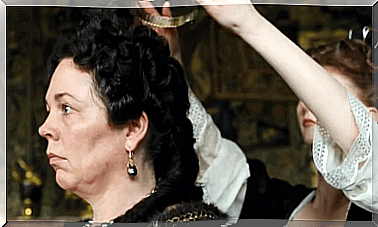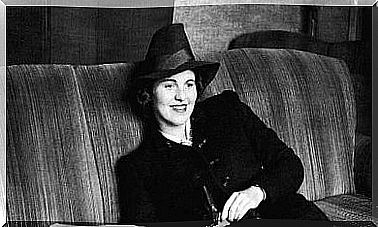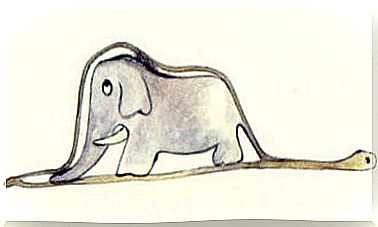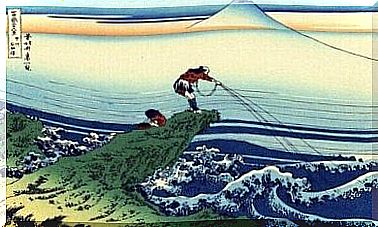Dark: The Series That Tells Us That Time Doesn’t Belong To Us
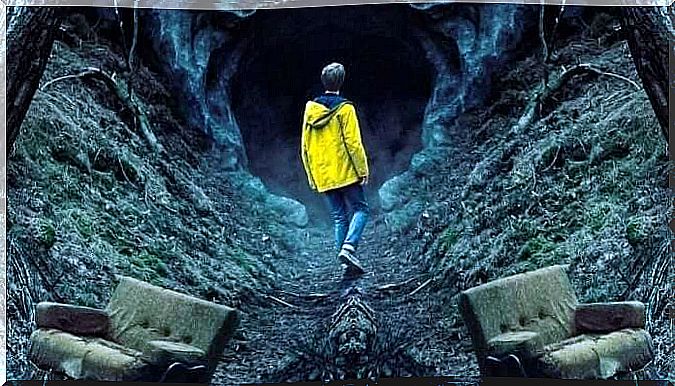
The German science fiction series Dark was voted the best series on the entire Netflix platform by the prestigious portal Rotten Tomatoes. Dark was created by Baran bo Odar and Jantje Friese in 2017.
This recognition is not surprising, as this series has very good ingredients. It makes us fantasize about the idea of time in a scientific and metaphysical way that has not been explored by any film production until then.
The plot presents the concept of time as something cyclic, based on the idea of the eternal return of Friedrich Nietzsche in his works A Gaia Ciência and Thus Spoke Zarathustra . But, unlike the merely philosophical, Dark raises the real possibility of the operation of time as an eternal loop, which produces the elimination of the classical conceptions of past, present and future. For this reason, characters can move between these times and influence events that happen before or after.
Dark’s plot
The central argument that dominates the entire plot of the series is to explain how time travel affected the fictional German city of Winden. Season one begins with the disappearance of a boy in 2019, Mikkel, who disappears into a cave in a forest similar to the German Black Forest.
This forest is littered with underground caves and a nuclear power plant that hides certain mysteries, including a scientific discovery that could change the course of humanity.
One of the teenagers involved in the incident, Jonas, decides to investigate what happened. His first inquiries lead him to discover that everything is related. First his father Michael’s suicide a few months earlier, and then the cave’s ability to alter his temporal capacity.
In addition to this temporal hole in the cave, there are other methods of time travel, some related to the cave and the nuclear power plant and others a little different that will be revealed little by little in an exciting storyline.
four families, a mystery
The story revolves around four families in the city: Kahnwald, Nielsen, Doppler and Tiedemann, in three different timelines: 1953, 1986 and 2019. The year 2019 is the starting point of the narrative action and the main arc. , the present of the series.
The timelines are 33 years apart and the characters interact with each other as they move between each of these three lines. They do this through a wormhole that may have been created by a leak of a substance from the Winden nuclear power plant.
The concept of time throughout human history
Dark is a series that deals with the cyclical theory of time, but there are many theories related to this topic. To place them, let’s review some currents of thought that have dealt with the conception of time:
- The theory of eternal return or eternal recurrence is an idea shared by several ancient civilizations, such as the Aztec, Indian, Greek and Egyptian. The events of objective reality repeat themselves cyclically. It’s the idea that is most reflected in Dark’s premise .
- The second idea about the temporal conception arises with the Hebrew and Christian religions, which propose a linear conception of time. This is the one that everyone usually assumes is correct.
- Thinkers like Louis Auguste Blanqui and Friedrich Nietzsche also support the idea of an eternal return: circumstances and events repeat themselves cyclically.
- Aristotle denied the existence of the past and the future because of the impediment to verifying where past events are and how to know those to come.
- In the modern era, there are two currents of thought regarding the concept of time: on the one hand, the objectivist theory, which emerges from Isaac Newton’s physics studies, the most accepted until the publication of Einstein’s theory of relativity.
- The subjectivist theory, proposed by Immanuel Kant, establishes that time is explained based on individual experiences. So it’s a personal construct. This idea transfers the temporal conception to the field of psychology.
- On the other hand, the contributions of Einstein’s theory of relativity, string theory and Stephen Hawking’s research on black holes that occur in Dark have not yet been proven in practice.

What happens to time in Dark?
In Dark , the wormhole figure is used to explain travel between the three dimensions of time. The release of energy from the nuclear plant may have given activity to this hole in the labyrinth of caves that runs through the city.
Dark raises the idea of time not as a linear dimension, but as an infinite loop based on Nietzsche’s concept of eternal return. This is also the conception that civilizations such as the Maya, the Indians, the Chinese and the ancient Egyptians had of time.
Although the plot of the series does not specify that it is possible to travel beyond the periods represented, there are two characters (Jonas Kahnwald and Claudia Tiedemann) who go back in time. The objective is to change the facts and destroy the mechanism that allows the different protagonists of the series to transition between the three epochs.
With this, one of the most important themes that the series defends is justified: the past influences the future and the future influences the past. Everything is related to each other. There is no beginning and no end; time is like a circle where all events coexist and all temporal realities are interconnected.
